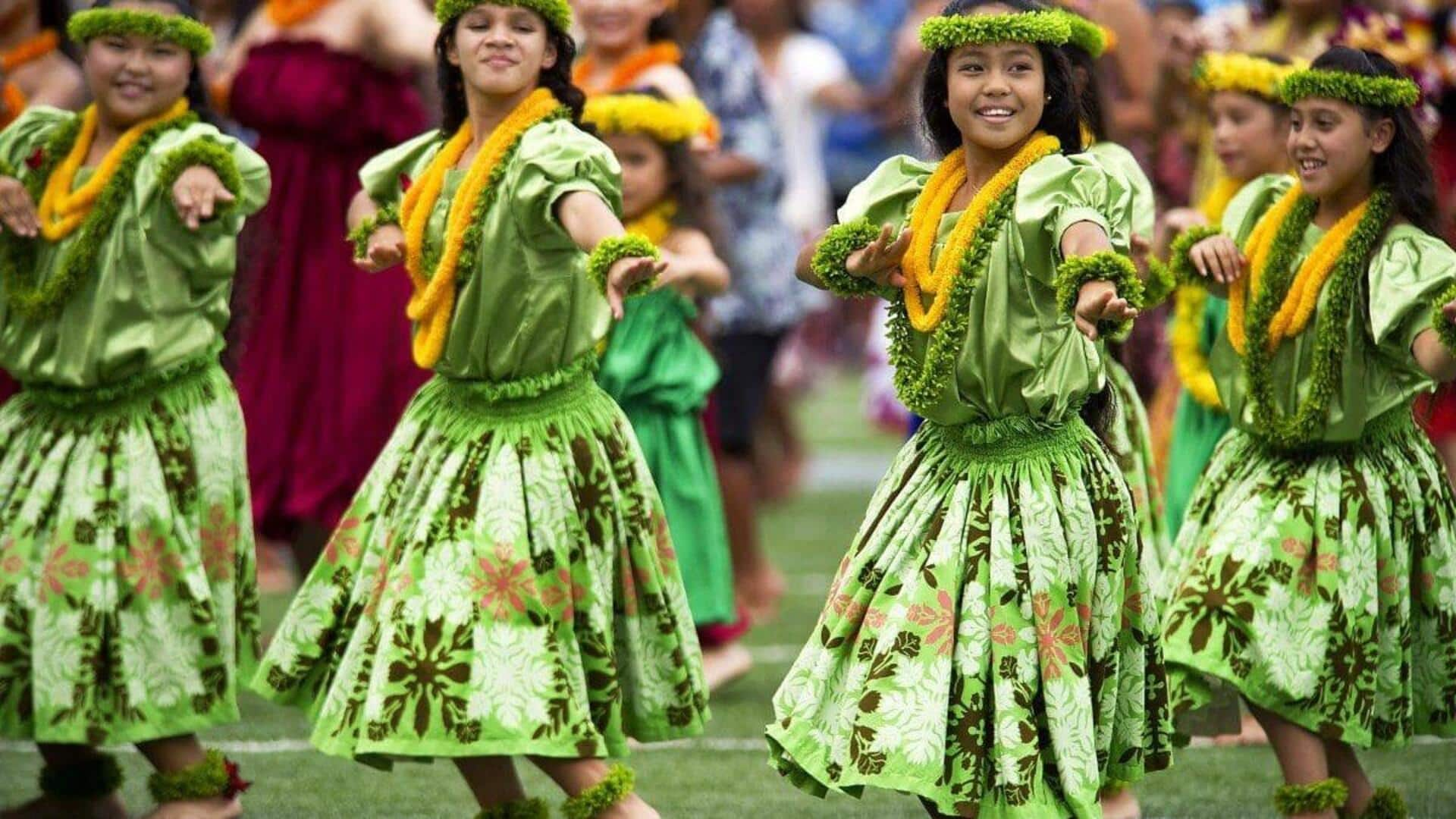
Hawaiian hula dance: Origin and significance
What's the story
Hula dance is a traditional Hawaiian art form that combines movement, chant, and music to tell stories. Deeply rooted in the culture and history of Hawaii, it serves as a means of preserving and passing down traditions. More than mere entertainment, this dance form embodies the spirit and values of the Hawaiian people. Here's all about hula and its roots.
Historical roots
Origins of hula dance
Hula dance is centuries-old in Hawaiian history. It was first performed as a religious ritual to honor gods and goddesses. Chants accompanying the dance were used to recount myths, legends, and historical events. Over the years, hula evolved from these sacred beginnings to a broader cultural expression, including both traditional (kahiko) and modern (auana) styles.
Cultural importance
Significance in Hawaiian culture
Hula is extremely culturally significant for Hawaiians as it helps them connect with their ancestors and heritage. The dance is commonly performed during important ceremonies such as weddings or festivals. Through hula, dancers express emotions such as joy or sorrow while remaining connected to nature with gestures that imitate natural elements such as waves or wind.
Kahiko vs Auana
Different styles of hula
Hula has two styles: kahiko (ancient) and auana (modern). Using traditional chants and percussion, kahiko has dancers in natural costumes. Auana incorporates Western influences, with ukuleles and colorful attire. Both styles pay homage to Hawaiian traditions, winning hearts of locals and visitors alike, and making the art form's beauty and cultural significance shine.
Modern practice
Learning hula today
Today, schools across the islands and beyond offer classes in both kahiko and auana for children and adults alike. These lessons highlight the discipline and dedication required to master the dance's intricate footwork, hand gestures, and facial expressions. Instructors with decades of experience guide students, making sure the tradition's value is appreciated the world over.